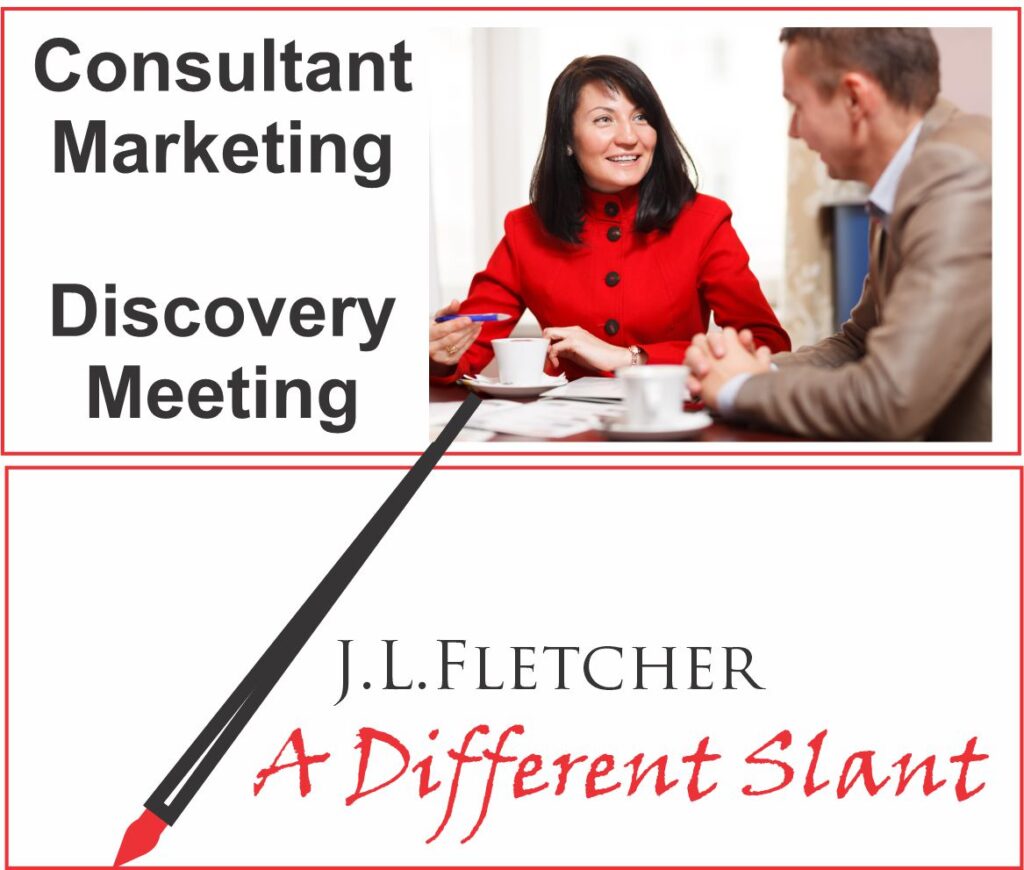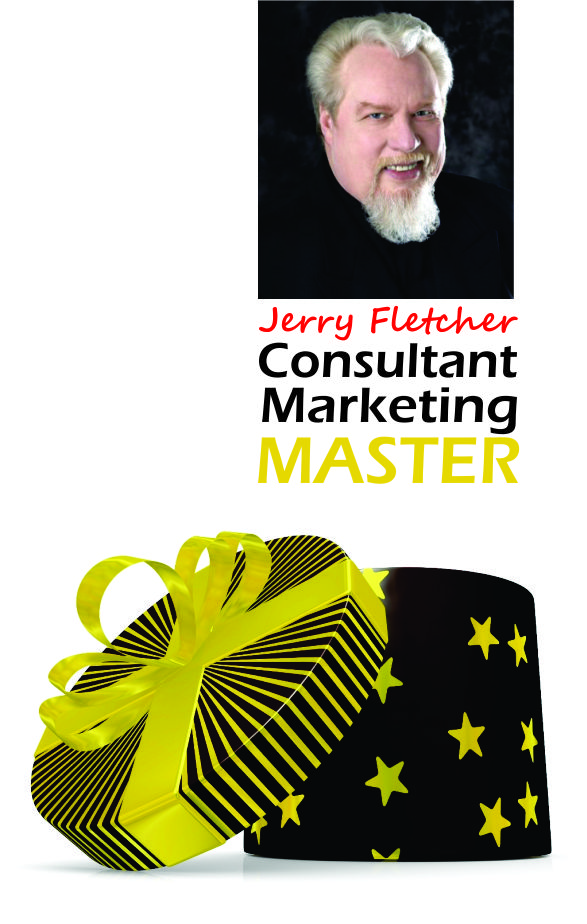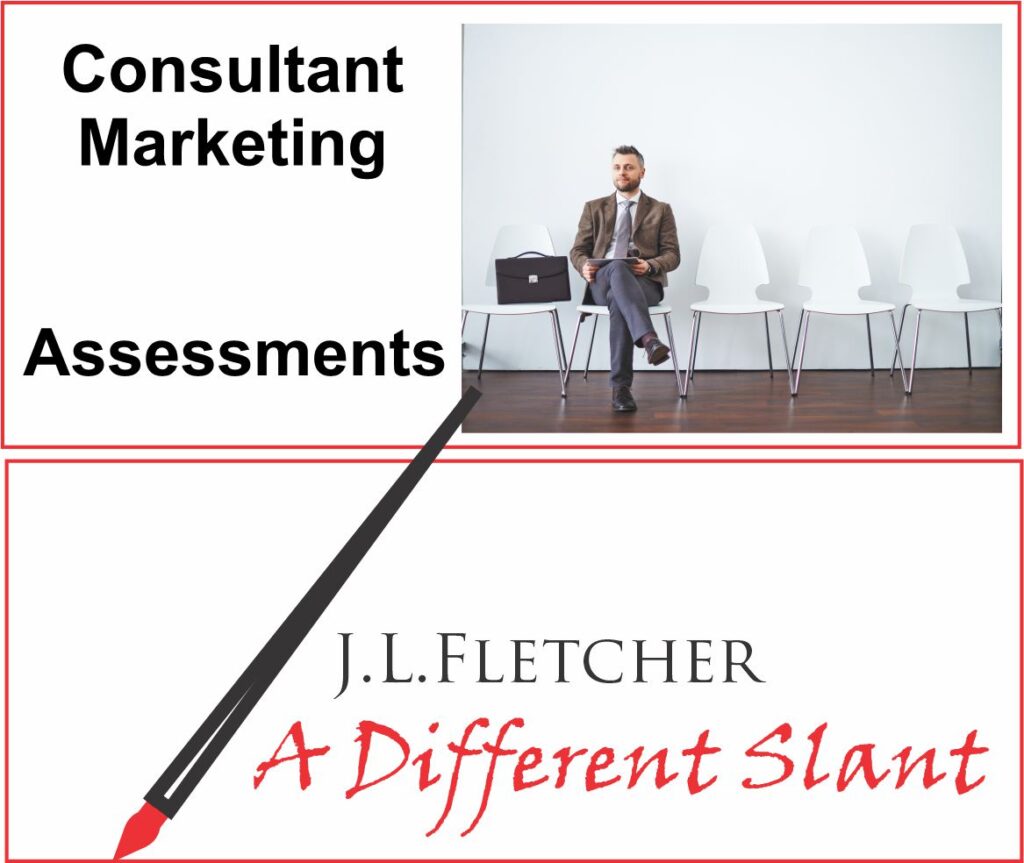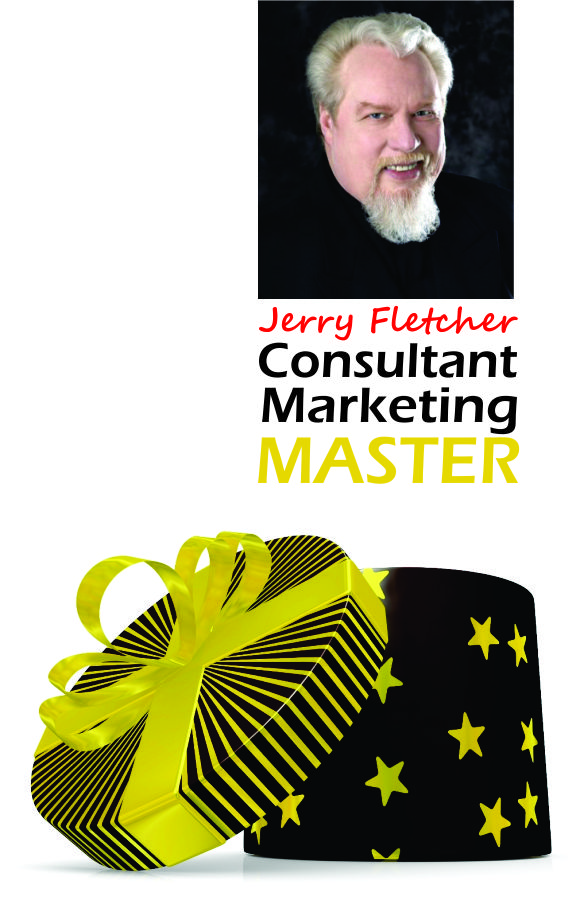
The Dance
where you sit down with a prospect and learn about her/his operation and get to ask questions from which you will develop a proposal.
You need to have this conversation whether you write a simple agreement or an in-depth three tier Value-based proposal. So that we are on the same page, Here’s what I believe should be included in a Value Based Proposal:
- Statement of the situation
- Objectives of the engagement
- Measurement–outcomes that indicate success
- Value to the prospect
- Methodology and Options
- Option 1 Project Advisor
- Option 2 Market Expansion Advisor
- Option 3 Trusted Advisor
- Terms and Conditions
Meeting name
Don’t call it a Discovery meeting or chat or whatever. Put yourself in the position of the prospect. To her or him, Discovery sounds like a scientific examination. It doesn’t sound friendly at all. Better words will be more neutral. For instance, consider:
- Informational Get Together
- Outcomes Conversation
- Compatibility Chat
- Get acquainted Discussion
Regardless of what you end up calling it, Your mission, should you choose to accept it, is to elicit hard data in the prospect’s terms that will allow you to present three options that have higher outcomes for the prospect’s business as well as increased income for you.
For Starters
Start by determining the primary problem that has caused them to consider your services. I find that it is best to be direct. Ask questions like: What is the problem or concern that caused you to want to talk? In most cases the answer will be that some metric in the sales equation is off. Often this is a narrow view. Be sure to ascertain sufficient background information about the industry and cyclical changes to put the symptom in context. In addition it wise these days to look into disruptions by indirect competitors.
You are preparing a tripe tier Value Based Proposal. You need to have the prospect isolate the out come if this problem is solved. Ask, “What would it mean if we solved this problem?” You need an answer in terms of:
- Savings
- Increased Revenues or income
- Outcome for individual or department or company
- How it would present to those involved
Becoming unforgettable
Now that you know what would satisfy the primary concern you can probe for data that will help you move from memorable to unforgettable. That happens because you don’t stop with the symptom. You work with the prospect to determine root causes and other problems generated by the primary. You delve into comments you let slide by as they told you about the situation in general. You explore any comment that you believe is causing an unwanted outcome.
If they didn’t give you a long-term goal, get one now. If they were uncomfortable talking about any part of the operation, now is the time to ask. With many people once they have told you the big problem in their view, they will relax. Here is a string of questions that allow you to go deeper:
- How did you get started?
- Have things changed much since then?
- How does that impact the company today?
- What about in the future?
- What are you doing about it?
- How have the costs shifted because of that?
- What would it be worth to you if we could solve that?
The information that battery of questions generates will give you what you need to write Option 2 as well as have greater clarity for the situation, objectives, Measurement and Value.
Headed for indispensable
Each of us learn in the course of an engagement. We naturally become more conditioned to the client’s business. We acquire additional expertise in the industry and markets in which the client participates. That knowledge plus the intimate knowledge gained of the client business combined with your capability to see the patterns and think outside the box make it easy to become an ongoing advisor, planner and implementer.
That, unless deeper problems or concerns surface, is the essence of the third tier proposal which makes the consultant a member of the team on an ongoing basis.
Are there other questions? Of course. This is a conversation where you are gathering information.
Do not sell.
You can comment that you have worked with similar situations. You can agree to tell all about those but at a later date. You can admit if something is new but always suggest it sounds similar to something in your experience.
This interview is about getting as much information as you can from the prospect as possible. Often, the astuteness of your question will bring the client to the point they want to get started.
Resist the urge to give them a quote on the spot. Tell them that you want to really step back and look at what they have told you. Tell them they will have your proposal shortly and it will have your best thinking on how to proceed.
And so it goes.
Jerry Fletcher is a sought-after International Speaker, a beBee ambassador, founder and CEO of Z-axis Marketing, Inc. See Jerry’s new speaker demo reel.
His consulting practice, founded in 1990, is known for on and off-line Trust-based Consultant Marketing advice that builds businesses, brands and lives of joy.
Consulting: https://www.JerryFletcher.com
Speaking: https://www.NetworkingNinja.com



